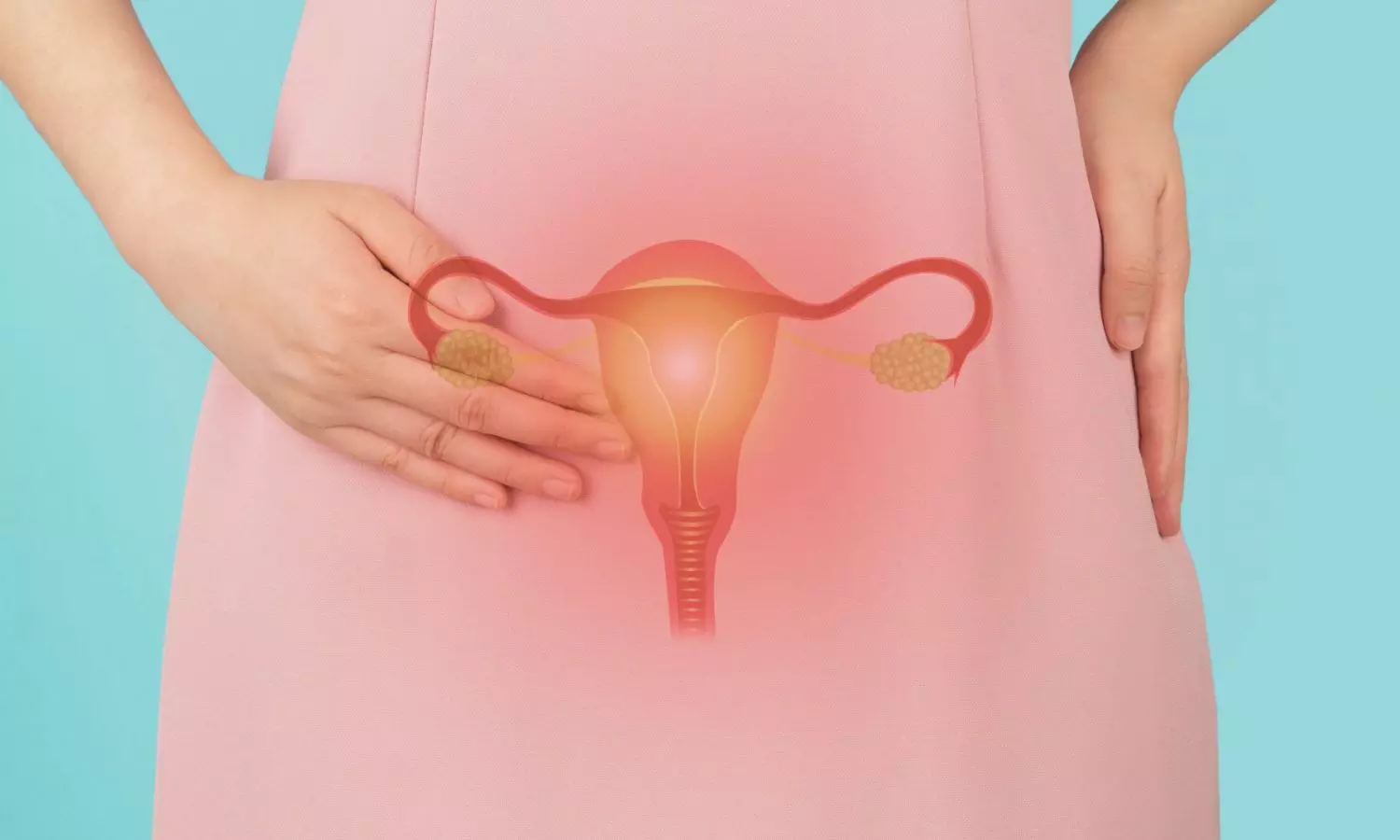- Home
- Medical news & Guidelines
- Anesthesiology
- Cardiology and CTVS
- Critical Care
- Dentistry
- Dermatology
- Diabetes and Endocrinology
- ENT
- Gastroenterology
- Medicine
- Nephrology
- Neurology
- Obstretics-Gynaecology
- Oncology
- Ophthalmology
- Orthopaedics
- Pediatrics-Neonatology
- Psychiatry
- Pulmonology
- Radiology
- Surgery
- Urology
- Laboratory Medicine
- Diet
- Nursing
- Paramedical
- Physiotherapy
- Health news
- AYUSH
- State News
- Andaman and Nicobar Islands
- Andhra Pradesh
- Arunachal Pradesh
- Assam
- Bihar
- Chandigarh
- Chattisgarh
- Dadra and Nagar Haveli
- Daman and Diu
- Delhi
- Goa
- Gujarat
- Haryana
- Himachal Pradesh
- Jammu & Kashmir
- Jharkhand
- Karnataka
- Kerala
- Ladakh
- Lakshadweep
- Madhya Pradesh
- Maharashtra
- Manipur
- Meghalaya
- Mizoram
- Nagaland
- Odisha
- Puducherry
- Punjab
- Rajasthan
- Sikkim
- Tamil Nadu
- Telangana
- Tripura
- Uttar Pradesh
- Uttrakhand
- West Bengal
- Medical Education
- Industry
Higher AMH levels lower ovulation chances during induction with clomiphene and metformin in PCOS patients

USA: A recent study published in Fertility and Sterility has shown reduced odds of ovulation with ovulation induction (OI) with clomiphene, metformin, and clomiphene+metformin with a higher Anti-Müllerian hormone (AMH) concentration in women with polycystic ovary syndrome (PCOS) and infertility.
"Higher baseline AMH concentrations were associated with a 10% reduction in the odds of ovulation per 1 ng/mL increase," the researchers reported. "Women with elevated baseline AMH (>8 ng/mL) had significantly lower ovulation rates in comparison."
Allison S Komorowski, Department of Obstetrics & Gynecology, Chicago, IL, USA, and colleagues described serum anti-Müllerian hormone concentrations in a large, well-phenotyped cohort of women with PCOS and evaluated whether AMH predicts successful ovulation induction in women treated with clomiphene and metformin.
For this purpose, the researchers performed a secondary analysis of a randomized controlled trial SUBJECTS: 333 women with anovulatory infertility attributed to PCOS who participated in the double-blind randomized trial entitled The Pregnancy in Polycystic Ovary Syndrome I (PPCOS I) study. These participants had serum samples from baseline laboratory testing available for further serum analysis.
The researchers assessed the association between baseline AMH concentration in each of the three treatment groups and ovulation rates, pregnancy rates and live birth rates.
The study revealed the following findings:
- 322 individuals had a baseline AMH concentration available, of which the mean AMH was 11.7 ± 8.3 ng/mL with a range from 0.1 to 43.0 ng/mL.
- With each unit (1 ng/mL) increase in baseline AMH, the odds of ovulation reduced by 10 per cent (OR 0.90); this effect did not differ by treatment group.
- Women with a high baseline AMH concentration (>8 ng/mL) were significantly less likely to ovulate compared to those with a normal baseline AMH concentration (<4 ng/mL) (OR 0.23). This remained statistically significant when controlling for confounders, including body mass index, age, time in study, and Homeostatic Model Assessment for Insulin Resistance (HOMA-IR) score.
- Ovulation occurred even at very high AMH concentrations; there was no maximum level noted at which no ovulation events occurred.
- When controlling for confounders, baseline AMH concentration was not associated with pregnancy or live birth rates.
"These AMH values of well-phenotyped women with PCOS add to the literature and will aid in identifying AMH criteria for PCOS diagnosis," the researchers wrote.
"A higher AMH concentration was associated with reduced odds of ovulation with OI with clomiphene, metformin, and clomiphene+metformin in women with infertility and PCOS," they concluded.
Reference:
Komorowski AS, Hughes L, Sarkar P, Aaby DA, Kumar A, Kalra B, Legro RS, Boots CE. Anti-Müllerian Hormone Level Predicts Ovulation in Women with Polycystic Ovary Syndrome Treated with Clomiphene and Metformin. Fertil Steril. 2023 Dec 26:S0015-0282(23)02102-7. doi: 10.1016/j.fertnstert.2023.12.031. Epub ahead of print. PMID: 38154770.
MSc. Biotechnology
Medha Baranwal joined Medical Dialogues as an Editor in 2018 for Speciality Medical Dialogues. She covers several medical specialties including Cardiac Sciences, Dentistry, Diabetes and Endo, Diagnostics, ENT, Gastroenterology, Neurosciences, and Radiology. She has completed her Bachelors in Biomedical Sciences from DU and then pursued Masters in Biotechnology from Amity University. She has a working experience of 5 years in the field of medical research writing, scientific writing, content writing, and content management. She can be contacted at editorial@medicaldialogues.in. Contact no. 011-43720751


